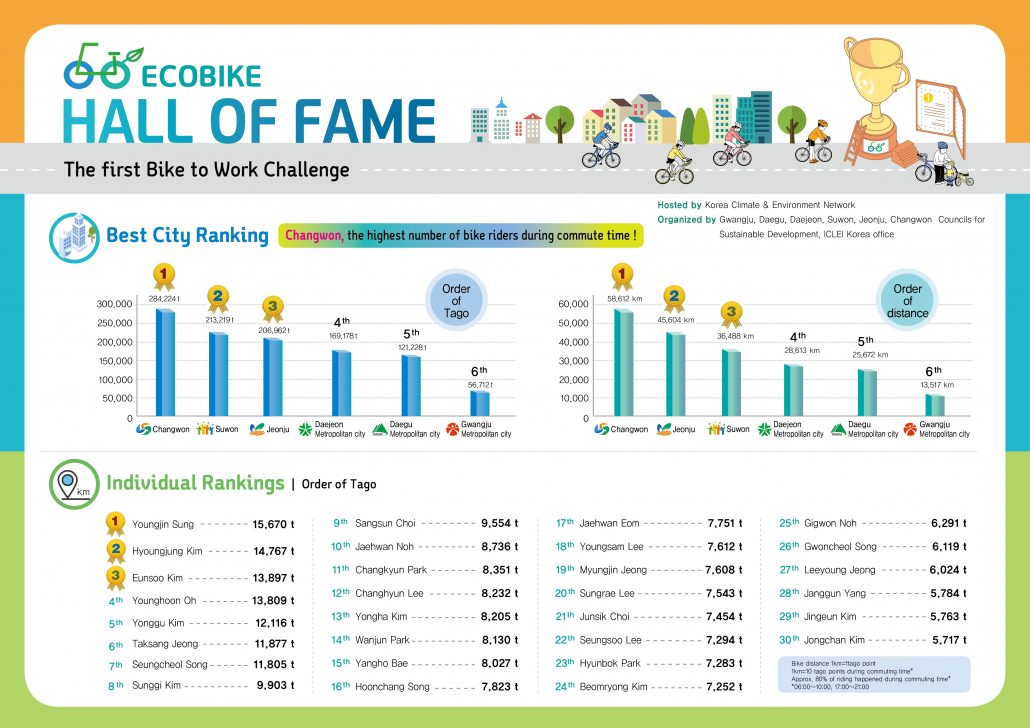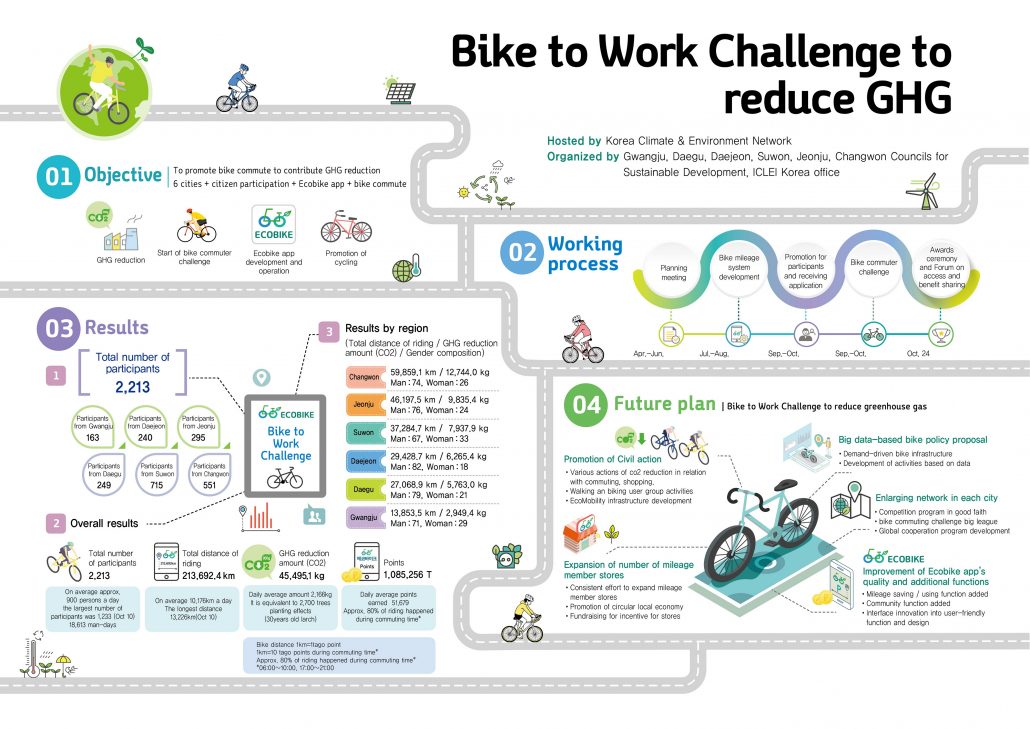Creating a positive urban cycling culture
In recent years, the South Korean Government invested in long distance bike paths focusing on the four major rivers and local rivers that incentivize cycling during leisure time as well as cycle tourism. Ambitious cities are investing in facilities for cycling as a clean, healthy alternative to motorbikes and cars. In the “Seoul Traffic Vision 2030” (2013), Seoul Metropolitan Government recognizes the need to create pedestrian-oriented and bicycle-friendly urban areas by expanding its bike-path network and associated infrastructure. Suwon city has also set ambitious goals to reduce greenhouse gas emissions by 2030 and has plans to improve its 350-kilometer network of bike lanes. Bike infrastructure is, however, quite scarce, and facilities are in poor conditions in most Korean cities. Improving bike infrastructure is crucial but infrastructure alone is not enough to create real change.
The perceived risks of urban cycling have made it harder for cities to change public behavior and foster a cycling culture. To combat this, Korean cities are working to improve road safety. On many urban roads, the speed limit has been lowered from 80 kph to between 60-70 kph. Ample evidence shows the relationship between speed and injury severity is particularly critical for pedestrians and cyclists. Pedestrians have a 90 percent chance of survival when struck by a car travelling at 30 kph or below, but have almost no chance of surviving an impact at 80 kph. Since 2018, the Seoul Metropolitan Government is piloting a lower speed limit of 50kph on selected roads with excellent results. In one year, the number of crashes decreased by 15.8 percent and fatalities by 22.7 percent in one pilot site.
An initiative like the “Bike to Work Challenge” has the potential to create a positive cultural shift. Not only is it a powerful way to tackle climate change, it also raises awareness of cycling as a viable option for daily commuters and strengthens public participation in mobility policy development through open consultations. The competition and gamification through the app incentivizes healthy and sustainable habits while creating a community of like-minded cyclists within the city and across cities in Korea. The initiative can also help cities achieve their modal split targets and potentially provide cities with data to inform their mobility policies.
Thanks to the contribution of the local and central governments, the organizers are looking forward to scaling up and expanding the “Bike to Work Challenge” in 2020. Two activities are already planned on April 22 (Earth Day and Korean Bicycle Day) and September 22 (World Car Free Day), when the organizers will evaluate and award prizes to the best performing cities and individual participants. There are also many more projects in the making: from turning Tago points into monetary incentives by partnering with local stores, to developing further assessment tools to inform policies to promote cycling and potentially improve broader aspects of community health by reducing emissions, increasing road safety and enhancing social cohesion.
As cycling will play an increasingly important role in future transport strategies in association with public transport, building cities for cycling will lead to cleaner air and safer streets. Simple but effective initiatives such as the “Bike to Work Challenge” can support such sustainable visions by building a cycling culture through smart technologies, strong partnerships, and active public participation.





